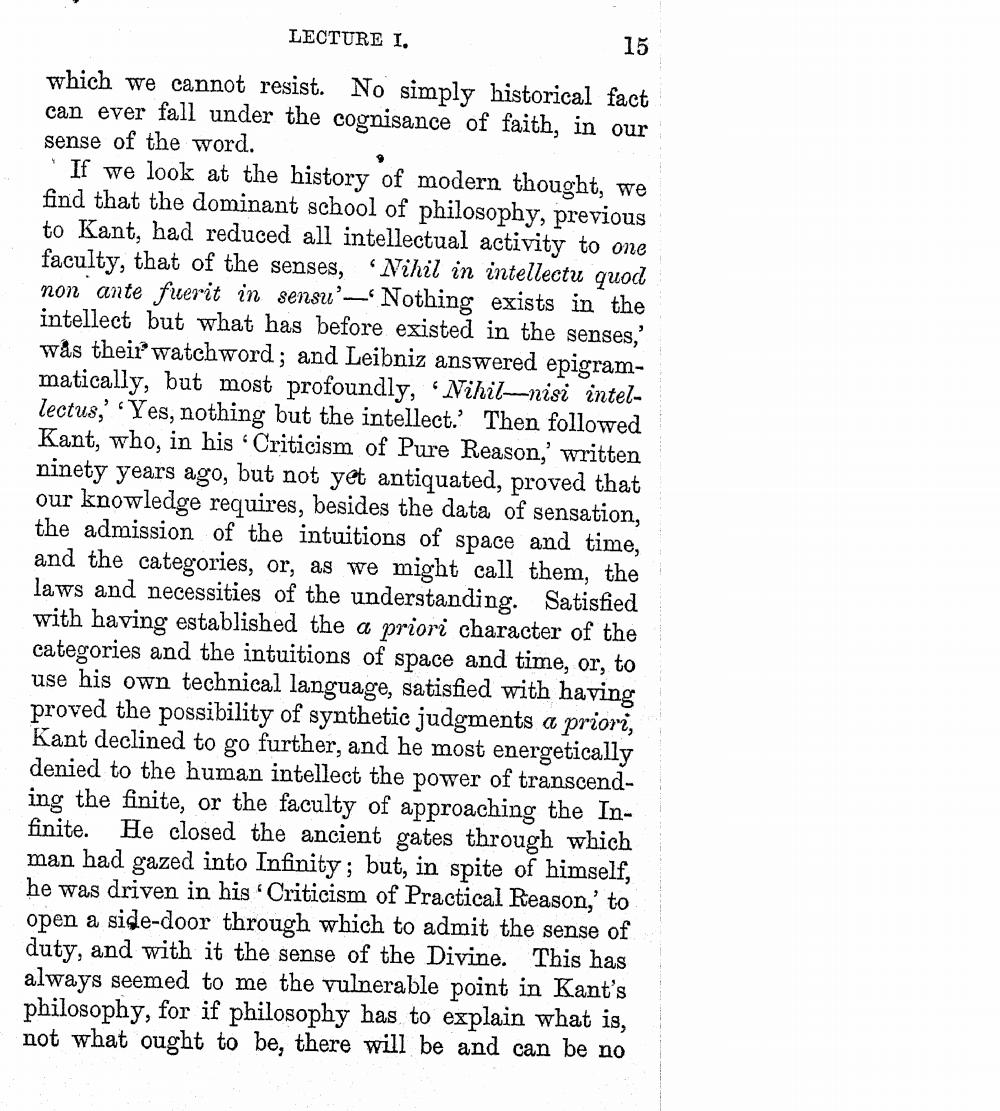________________
LECTURE I.
15
which we cannot resist. No simply historical fact can ever fall under the cognisance of faith, in our sense of the word.
If we look at the history of modern thought, we find that the dominant school of philosophy, previous to Kant, had reduced all intellectual activity to one faculty, that of the senses, 'Nihil in intellectu quod non ante fuerit in sensu'- Nothing exists in the intellect but what has before existed in the senses,' was their watchword; and Leibniz answered epigrammatically, but most profoundly, “Nihil-nisi intellectus,' Yes, nothing but the intellect. Then followed Kant, who, in his Criticism of Pure Reason,' written ninety years ago, but not yet antiquated, proved that our knowledge requires, besides the data of sensation, the admission of the intuitions of space and time, and the categories, or, as we might call them, the laws and necessities of the understanding. Satisfied with having established the a priori character of the categories and the intuitions of space and time, or, to use his own technical language, satisfied with having proved the possibility of synthetic judgments a priori, Kant declined to go further, and he most energetically denied to the human intellect the power of transcending the finite, or the faculty of approaching the Infinite. He closed the ancient gates through which man had gazed into Infinity; but, in spite of himself, he was driven in his 'Criticism of Practical Reason,' to open a side-door through which to admit the sense of duty, and with it the sense of the Divine. This has always seemed to me the vulnerable point in Kant's philosophy, for if philosophy has to explain what is, not what ought to be, there will be and can be no




